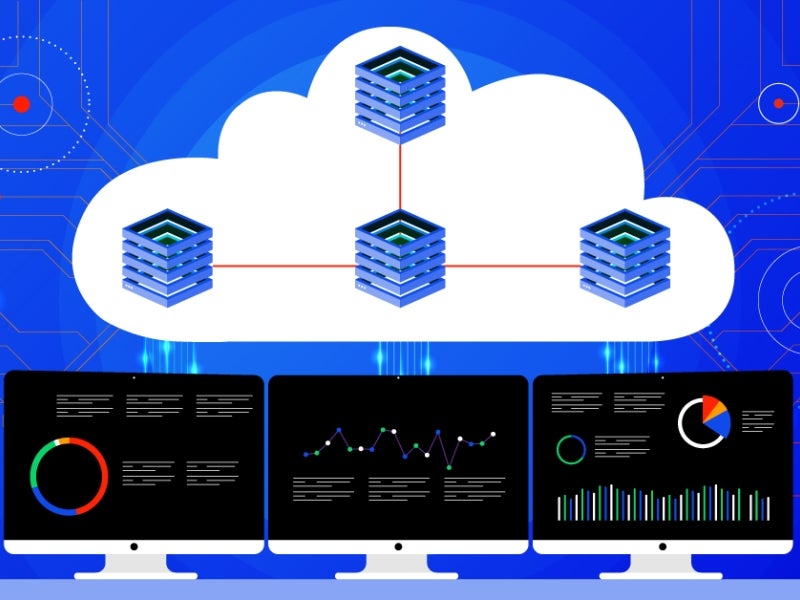What makes our Master of Business Analytics different
Ranked Australia’s #5 university under 50 for Computer Science and Information Systems¹
5 star rated for excellence across 8 categories4
Australia's 11th top business school3
Ranked in the Top 100 universities in the world2
¹QS World University Rankings by Subject 2024 2QS World University Rankings by Subject 2025 3The AFR BOSS Best Business Schools, Australian Financial Review, 2025 42024 ERA 5/5
What you will study
UTS Online’s Master of Business Analytics comprises 11 subjects (72 credit points in total). Each of the 12 study periods includes subjects totalling 6 credit points. The notable exception is the “Innovation Studio,” a comprehensive 12-credit-point subject that spans two study periods and allows for in-depth exploration and application.
Note: Students may exit with a Graduate Diploma after completing 8 subjects. To find out more, download a course guide or speak with an Enrolment Advisor
- Database (6CP)
- Financial Analysis for Decision Making (6CP)
- Business Analytics Foundations (6CP)
- Data Ethics and Regulation (6CP
- Foundation Studio (6CP)
- Python Programming for Data Processing (6CP)
- Data Visualisation and Visual Analytics (6CP)
- Customer Analytics (6CP)
- Machine Learning (6CP)*
- Innovation Studio (12CP – this subject goes over two study periods)
- Financial Analytics (6CP)
*Pre-requisite: Students must have passed the Python Programming for Data Processing (6CP).
For more information, please download your course guide.
Upon successful completion of the Master of Business Analytics, you will develop skills through the following learning outcomes:
- Business knowledge and concepts
You will become an expert in applying appropriate data analytics to identify problems and uncover opportunities to inform decision making. This is through integrating advanced data analysis techniques with business practices to generate actionable knowledge to inform and facilitate effective decision-making in local and international contexts. - Critical thinking, creativity and analytical skills
Apply advanced analytical, quantitative and computer modelling techniques to identify business problems, formulate options and justify inventive solutions. Become a critical thinker and a proficient data analyst to provide solutions to a specific business and/or industry context. - Communication and interpersonal skills
Convey information clearly and fluently in written and verbal form appropriate for the problem, data and stakeholders. Learn to interact with colleagues and stakeholders to work effectively towards agreed outcomes. You’ll become a storyteller and effective communicator of complex information to a wide audience. - Attitudes and values
Critically evaluate and apply principles of sustainability, ethical and social responsibility as well as Indigenous values relating to professional practice in data analytics. Become an advocate of ethical and sustainable practices relating to the collection, storage, use and dissemination of information. - Business practice-oriented skills
Demonstrate expert technical and adaptive skills in data analytics relevant to business contexts. Become a skilled practitioner in problem identification and solving, understanding of business context, and being responsive and adaptive to changing environments.
The UTS Online Master of Business Analytics is tailored to professionals who want to diversify their career options and gain the confidence, competence, and skills to influence organisational decisions through data. Students of this course may have backgrounds in varying industries and be specialists in fields of IT, engineering, information science, analytics, business, marketing, HR, accounting or finance in roles such as:
- Business Consultant
- Marketing Manager
- Engineer
- Software Developer
- ICT Manager
- Accountant
- Finance Specialist
- HR Coordinator
See Entry requirements under Course information for more eligibility information.

Upcoming study periods
UTS Online courses have six intakes per year. The diagram below shows all upcoming
intakes, with the next intake highlighted in blue.
Course information
English language requirements apply to both international and domestic students. Please refer to the UTS English language requirements for further information on how to satisfy the requirements for the course/s.
The English proficiency requirement for international students or local applicants with international qualifications is: Academic IELTS: 6.5 overall with a writing score of 6.0; or TOEFL: paper-based: 550-583 overall with TWE of 4.5, internet-based: 79-93 overall with a writing score of 21; or AE5: Pass; or PTE: 58-64 with a writing score of 50; or C1A/C2P: 176-184 with a writing score of 169.
Eligibility for admission does not guarantee offer of a place.
To gain entry into the Master of Business Analytics, applicants must have completed a UTS recognised bachelor's degree in a related field within the business or information technology discipline that demonstrates potential to pursue graduate studies.
Eligibility for admission does not guarantee offer of a place.
Note: Applicants who do not meet the entry requirements for the Masters may use the successful completion of the Graduate Certificate as a pathway, provided they meet the specific entry requirements for the Graduate Certificate of Business Analytics.
To assist with all or some of your tuition fees, FEE-HELP is available for eligible students. This government-supported loan scheme is designed to help eligible full-fee paying students pay their tuition fees.
To check your eligibility, feel free to speak with an Enrolment Advisor today.
Unsure about your situation?
One of our Student Enrolment Advisors can assist you with more information, including alternative pathways.
Career Outcomes
Upon successful completion of the Master of Business Analytics, graduates will have a broad scope of job roles available to them. According to the Analytics Institute of Australia¹, the top industries where business analytics professionals work are: Information Technology, Finance/ Insurance, Government and Public Sector, Business/Professional Consulting, Healthcare and Social Services, Entertainment and Retail. The types of roles include:
- Senior Digital Marketing Analyst
- Market Research Analyst
- Customer Analytics
- Business Analyst
- Business Analytics Consultant
- Financial Analyst
- Operations Business Analyst
1 Analytics Institute of Australia (2023)
Data Analyst Salary
$104,450
The earning potential for data analysts in Australia is impressive. According to Talent.com, the average salary for data analysts in Australia stands at $104,450. Even junior data analysts command an average annual salary of $90,988, while senior data analysts make an average of $129,500 per year. These figures are highly competitive and reflect the value placed on data expertise.
(Analytics Institute of Australia)
“It’s a well-balanced course, and it will provide you with a great mix of business, technology, and data analytics knowledge. The privilege of studying at UTS and the fact that the course was online were the top-selling points."
- Cristiano Kochenborger (Master of Business Analytics student and IT application support professional)
Meet our Course Director
“For many businesses, analytics serves as a cornerstone for corporate success, transforming raw data into actionable insights that are essential for informed and strategic decision-making. This dynamic field, crucial in addressing key challenges such as deciphering customer behaviour, boosting operational efficiency, and refining risk management strategies, is constantly evolving. The integration of AI and machine learning is revolutionizing our approach to data processing and interpretation, necessitating professionals who are adept at navigating the intersection of technology, data analysis, and strategic decision-making.
"The UTS Master of Business Analytics is designed to prepare students for this ever-changing landscape. Our program equips learners with practical, real-world skills, fostered through exposure to industry leaders from diverse faculties including the Faculty of Engineering and IT (FEIT), the UTS Business School, and the Faculty of Arts and Social Sciences (FASS). Students delve into developing robust technical skills for data analysis and acquire the business acumen needed to apply these techniques in real-world scenarios. Additionally, our curriculum places a strong emphasis on understanding the legal and ethical implications of working with data, ensuring our graduates are not only skilled analysts but also responsible and ethical professionals. At UTS, we are committed to molding analytics experts who are ready to make a significant impact in the business world."
Dr Matthew Grosse
Senior Lecturer, Accounting, UTS Business School







